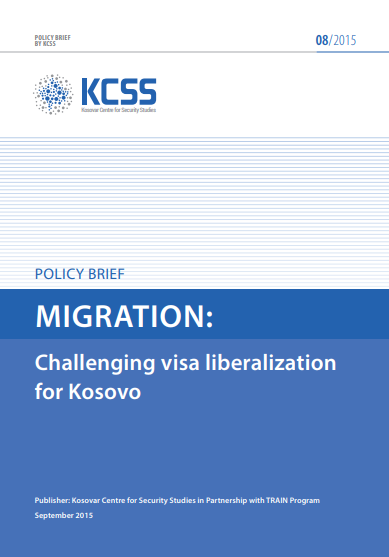19/11/2015

This paper aims to demonstrate the extent to which the recent migratory flows from Kosovo challenged its visa liberalization process in both the technical and political aspects. While the technical aspect includes repatriation of the returned persons in Kosovo, the political aspect relies on the attitude of the EU countries towards Kosovo when granting their opinion on the visa liberalization process for Kosovo.
The end of 2014 and the beginning of 2015 have witnessed a rather large wave of Kosovo migrants heading towards the EU countries through the so called “Western Balkan route” mainly via Serbia aiming to reach the EU Schengen zone. The flux of migrants raised a lot of questions about the implications for Kosovo's EU perspective.
According to the authorities in Prishtina, roughly 50,000 (Kosovo Intelligence Agency, 2015) people left Kosovo from November 2014 to April 2015, although data published by the Eurostat count roughly 75,000 persons (Eurostat, 2015) aiming to reach the EU countries, in most of the cases Germany. Correspondingly, during this period, citizens of Kosovo topped the list of asylum seekers in Europe with roughly 74,755 applications, followed by Syrians with and Afghans (Eurostat, 2015).
This policy brief has been prepared in the framework of the TRAIN Programme 2015 (Think Tanks Providing Research and Advice through Interaction and Networking), which is supported by the German Federal Foreign Office (Stability Pact for South East Europe) and implemented by the German Council on Foreign Relations (DGAP).